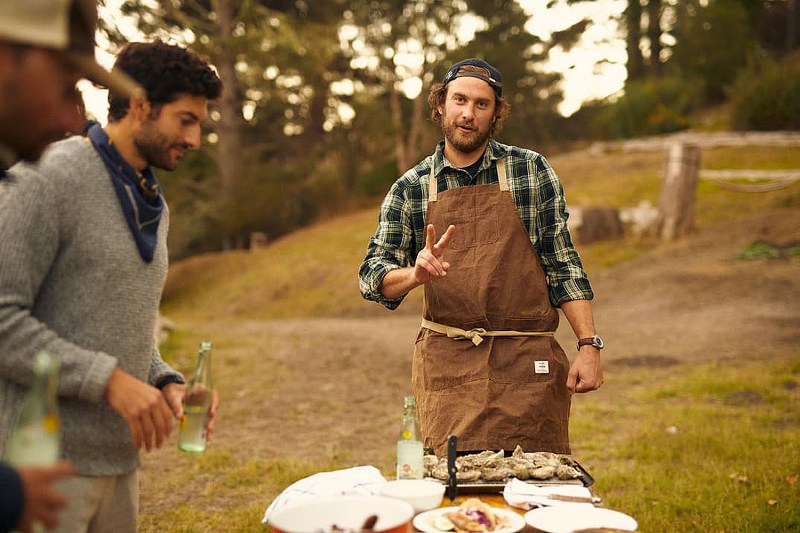
Anyone who’s a fan of creating really amazing food and getting more involved in the kitchen at home has likely stumbled across Brad Leone’s YouTube series with Bon Appétit, where he is the test kitchen manager. The 36-year-old hailing from New Jersey gained a significant following that is no doubt due to his scintillating teaching methods and jaunty personality.
From the original It’s Alive with Brad Leone videos to the follow-up segments of It’s Alive: Goin’ Places, Leone has presented his depth of knowledge both in the kitchen and out in the field. Over the past few years, however, Leone has publicly stepped even further into the field and shared stunning photos from his game hunts and fishing charters.
Related Guides
That’s why The Manual sat down with Leone to talk all things fishing just in time for long summer days. From learning to love the outdoors as a child himself to passing it on to his kids, Leone is continuing to explore how the pieces of ecosystems contribute to a larger picture.
Leone Grew Up Getting Outside
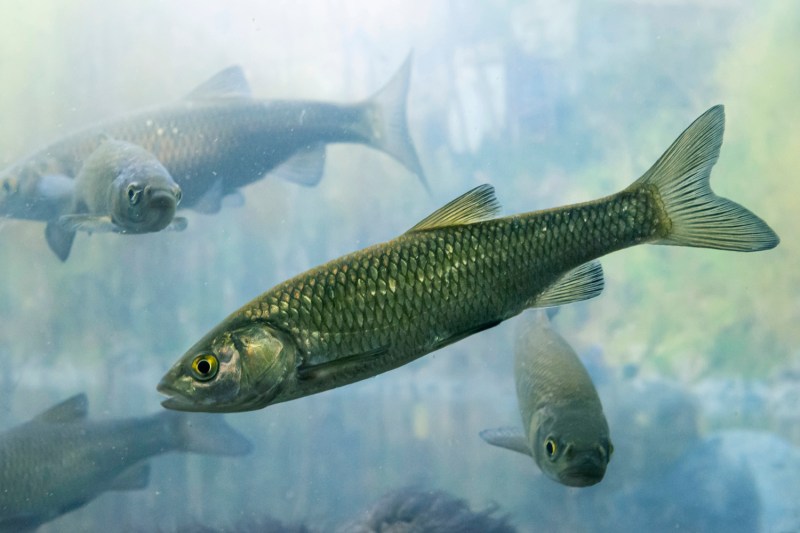
Growing up in New Jersey, Leone’s father taught him to appreciate the outdoors. “A lot of folks don’t really think of New Jersey as much of an outdoors kind of area, but it is a rather diverse state as far as what is available to people who want to get out into the outdoors.”
Despite the state being relatively small and densely populated, Leone explained that the stretch of Earth he called home was rural and allowed him to explore. “I grew up in the Northern spot where the Appalachian trail kind of kisses through it into Pennsylvania, New York, a little tri-state area, Delaware water gap area. It was like another world,” he said. Apart from the landscape, Leone’s dad is largely the reason he loves many of the outdoor hobbies he enjoys today.
“I have a dad who, when I was young, was really fortunate to get me into fishing and introduced me to hunting. And then really wild, like, odd things, I had friends that would go fishing and catch crappie bass and sunnies or catfish. But my dad had this, like some real good-old-boy stuff. We’d go frogging and snapping turtle hunting, and make snapping turtle soup and fried frog legs when I was young and duck hunting,” Leone explained.
Even though it was that childhood foundation that sparked his interest in the outdoors, Leone found later in life that his dad’s principles informed his own views in the kitchen.
“Nowadays I wish I could do this over, I would be so much more excited about it, but like the nostalgic memory of doing all these oddball things really kind of helped build the foundation of who I am today in that space. And then it ties right into food in a sense, because, not only was I introduced to the activity of fishing and hunting, but also the respect for nature and the food that comes with it. Something that was always heavily instilled into my head was, ‘you never kill or shoot something that you’re not going to eat.’ And my dad was very serious about that when I was younger,” Leone said.
He’s Passing It On Too
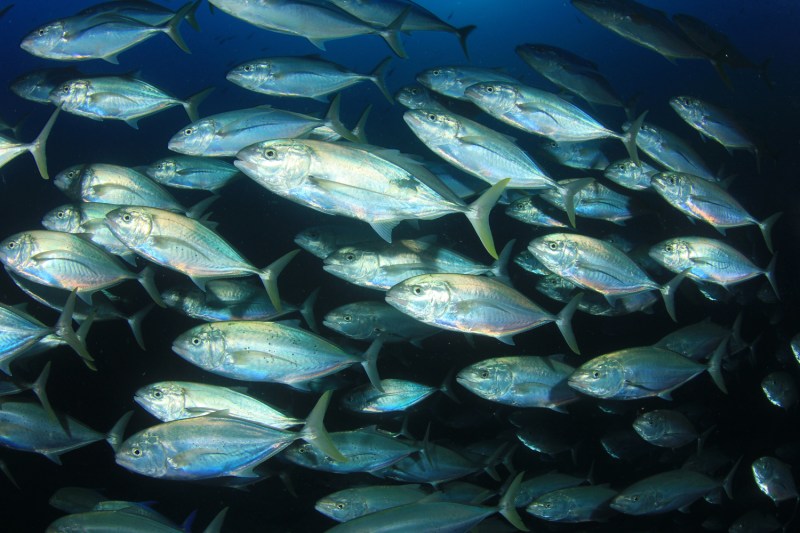
Leone recalls hunting snapping turtles with his dad “to eat their delicious, beautiful, sweet white tender meat.” But as a kid, what seemed to fascinate him the most was that he quickly learned to take his dad’s word.
“My dad was always very serious about not messing with or touching or, little kid s–t, touching the severed, snapping turtle head for hours. ‘Brad, don’t go near it. It’ll bite your fingers off.’ And I’m just like, ‘what are you talking about? It’s sitting on a railroad tie,'” he said.
That’s when he decided to test what his dad was claiming. “My dad goes ‘here is a stick’ and he walks over to it and he goes, ‘I want you to pay attention.’ And I see the eyes of this turtle move right to where we’re going. And my dad put the stick at it. And the head just went [wham!] and bit the stick two hours later. It would take your finger off,” Leone laughed as looked back.
While those memories as a kid are so valuable as an adult, Leone is sharing many of those same ideas and concepts with his own children. “I have two young boys and they’re not in a position or age where they’re killing anything to eat it — for that matter, or anything. But I already introduced that idea into it and just being able to showcase it and show people, my kids or friends that, just because I go and catch a fish and kill it and eat it, or a deer or a turkey, being able to be attached to your food and having that traceability and accountability of where it comes from. But then also realizing that the dirty work is getting done, whether you’re doing it or not.”
Though there’s a nostalgia that comes with those experiences as a kid, it becomes so much more later in life.
Leone on His Fishing Rituals
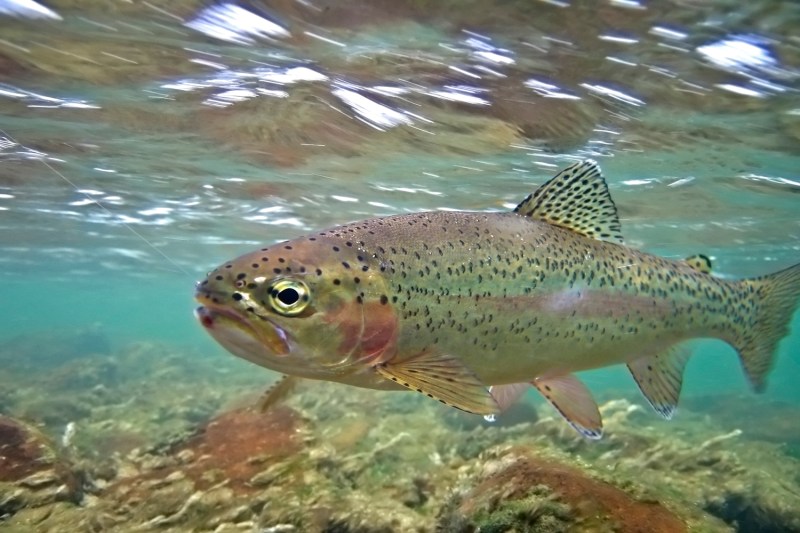
When it comes to spending the day with a rod in hand, there tend to be two camps: Those who enjoy it best alone and those who prefer the company of friends. Leone actually subscribes to both and recognizes the beauty of a peaceful day on the water as much as quality time with his friends.
“I really do enjoy both and there’re so many different types of fishing. I was just out, we do some living on coastal Connecticut and Rhode Island here. We have some really great saltwater big fish, fast fish, heavy fish, aggressive fish, just like saltwater action. I can go with friends and it’s a blast,” he said.
The diversity of the experience appeals to Leone. “I also really enjoy quiet little rivers, creeks, and lakes, fly fishing, going from these fish, the size of you and, these thicker lines and lures on them that are the size of my arm, to these tiny little knots and these thin little tippet lines of a three-way trying to match the halves to catch these little wild brook trout. So there’s a therapy in that and a nice kind of mental discipline that I find in fishing alone. Especially in a quiet, small, freshwater scenario that is very relaxing and meditative for me, as opposed to the saltwater rock show,” he elaborated.
But when it comes to the day before heading out on the water, Leone has his set routine. “I’ll take Dramamine the night before. And then lots of water. Try to go out hydrated, especially if you’re going to be going out on a boat or something. Especially if you’re catching fish, you’re excited and God forbid you drink a beer or something, you’ve got to stay hydrated out there big time,” Leone said.
He likes to be prepared ahead of time, too, so there’s no scrambling the morning of. “I’m all about having my stuff squared away the night before, kind of like packed by the door and the car. And so when I wake up, I have a little coffee,” he explained. The packing process likely takes some time, too. Leone likes to bring everything he needs for both fly fishing and spin fishing wherever he goes. “It’s such a complicated thing because fly fishing is just so much more beautiful and sometimes so much more effective than anything you could put on a spinner,” he added.
Where His Latest Fishing Trips Have Taken Him
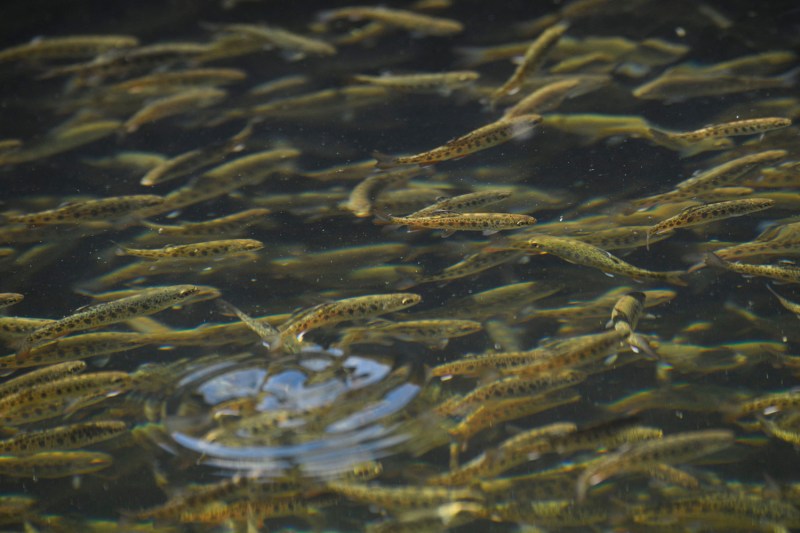
While Leone’s work with the, It’s Alive: Goin’ Places series has taken him to some incredible destinations like Ecuador, Alaska, and Hawaii, he says he’ll “always have a soft spot in [his] heart for the Pacific Northwest and the Midwest.” Though he says he can’t get back to those fishing and crabbing spots soon enough, his latest fishing trip actually took place closer to home the weekend before Memorial Day.
“My most recent fishing trip was up in Cape Cod last weekend with Yeti coolers out of Austin. And I became an ambassador with them a little while ago and it was a fly fishing tournament, it’s called the Cheeky Schoolie and it was a striped bass fly fishing-only tournament. We went up there for a couple of days and I got to hang out with a couple of the other amazing ambassadors, from fishing people and in the beer world and food world, who all also have similar interests in fishing,” Leone explained.
While the people present and the tournament itself were amazing, it was a personal accomplishment that really made the weekend for Leone. “I picked up fly fishing a couple of years ago, kind of self-taught, picking up things from friends. Just that past weekend, I landed my first saltwater fish on the fly, which was awesome,” he said.
Why Leone Loves Yeti
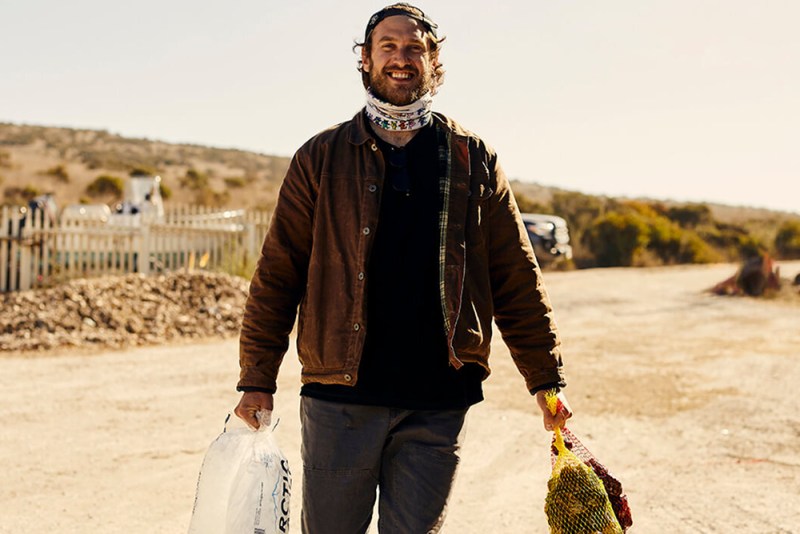
Leone considers himself to be a “gear guy” no matter what the medium is — from technology and rods to keeping drinks cold and more, he loves it all. While Yeti certainly has everything you could possibly need to keep your water cold on a hot day or the day’s catch fresh until you get home, it’s actually some of the company’s other gear that Leone loves most.
“Some of my favorite Yeti products aren’t even coolers, they make some really awesome bags, duffle bags, and great bags for the boat, which I find really awesome. They’re just well-built things that are as attractive as they are functional, if not more, functional as they are attractive, you know? And I feel like Yeti does a pretty good job with that,” Leone says.
Apart from Yeti, there’re some pieces of gear he just can’t go without. First and foremost is “a good pair of boots.” He says, “my go-to right now are just my casual, old pair of Danners I have. They’re fantastic. And then out on the boat, I like a good, either a short or a high up to the knee, kind of like extra-tough rubber boot.”
Next up on his list is, “a good knife for whatever kind of whatever you’re doing.” Last on the list Leone says, “I have this really cool underwater camera, it’s not like this big bulky thing, it’s just like a normal 35-millimeter camera that I’ve been really, really enjoying bringing it everywhere.” But to top it off he also added, “then I guess a computer or my phone or something. Right. Everyone’s like screwed without those these days.”
On His Favorite Fish
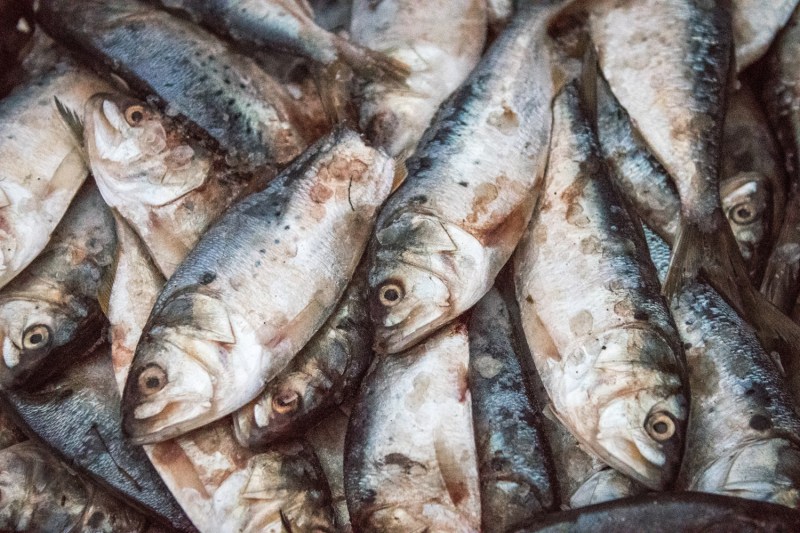
When pressed, Leone talked to The Manual about some of his favorite fish. While he said he loves trout among other fish like sea robins or bluefish, it’s the last kind of fish he talked about that really allows his ideals on the outdoors to shine. He mentioned bunker fish which are more formally known as menhaden because of their role in their ecosystem.
“Where I grew up, you used it as crab bait. It’s a fish this big, oily, boney, giant sardine, not as delicious. It’s mushy, super oily, full of nutrients,” he explained. But Leone has good reason to love this species that’s often looked down on.
He continued, “the reason why I picked it is because they’re struggling a little bit from overfishing because people use them for fish oil. Industries use them for fish oil and for bait now, but they’re one of the most important fish in the ocean because absolutely everything eats them. They’re such a vital part of the food chain and ecosystem here in the Atlantic Ocean that having something go wrong with them would just snowball everything else. So we’ll pick bunker menhaden. My favorite fish.”
Like the menhaden, Leone’s latest project illuminates the sustainability issues many ecosystems are facing and the fact that everyone should be thinking more about taking care of the flora and fauna that’s here.
On His New Cookbook
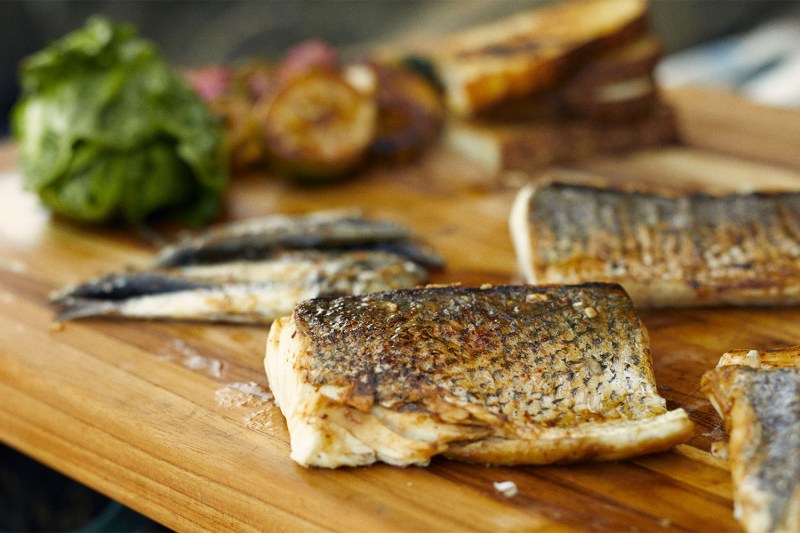
Leone is a firm believer, just as his dad taught him, that whatever you kill shouldn’t go to waste. In the kitchen, that means properly caring for the ingredients he has. “My favorite thing to do with something like the catch of the day is to take care of it on the boat. Bleed the fish out, treat it like it was worth $10,000. Bleed it out, treat it beautiful, put it on ice, get it nice. Don’t just leave it on the deck, flopping around, beating it up, and stressing out,” he says.
Once it’s home, he uses essential ingredients like olive oil, salt, and pepper or perhaps a touch of garlic to showcase the fish. “That fish is so phenomenal I don’t need to mask it with much,” Leone said.
While he doesn’t follow a recipe per se with his catch at home, he does have quite a few recipes to share in his new cookbook, Field Notes for Food Adventure, which is available for pre-order now on his website or Amazon. The cookbook was announced on May 28 and will hit bookstores on November 9.
“Every chapter is at a different location throughout the Northeast. One being squid fishing, one being shellfish in seaweed up in Maine, one being crabbing in New Jersey and deer hunting with my dad, and then some saltwater fishing out here,” Leone said. Each chapter features stories to entice people to get more involved with their food and understand it better. For Leone, the book is for those who “want to just try to get out there, because it’s a beautiful way to appreciate and grow respect for how attached and how much of a part of this food system we are and need to be.”


